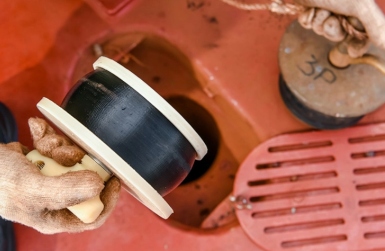
NTSB issued an investigation report on the overpressurization and rupture of a cargo tank on the cargo ship Fairchem Filly while at Houston Ship Channel, in May 2019. Investigators stressed that the vessel and terminal personnel involved were not following procedures related to cargo discharge and nitrogen-blanketing operations.
On 30 May 2019, about 0750 local time, the Marshall Islands-flagged chemical tanker Fairchem Filly, with a crew of 22, experienced an overpressurization of the number 3 port and starboard cargo tanks while discharging liquid hexene at Vopak Terminal in Deer Park, Texas.
The overpressurization resulted in damage to the number 3 port cargo tank and the tank top (deck). All cargo was contained on board the double-hulled vessel, with no pollution or injuries reported. Damage to Continue reading “Overpressurization and rupture of cargo tank onboard Fairchem Filly report published”




 The
The 




